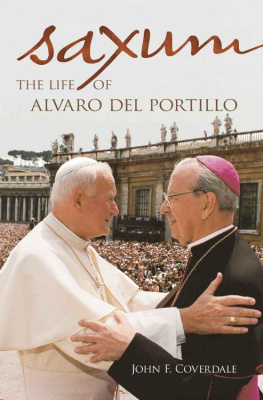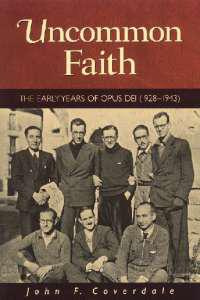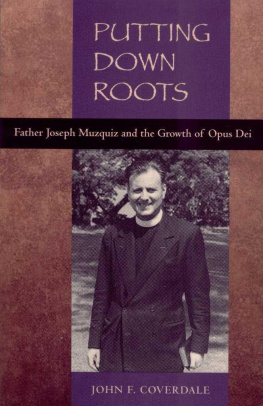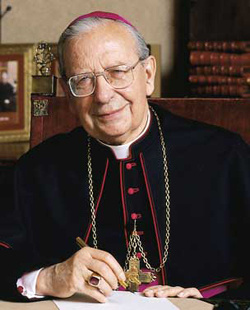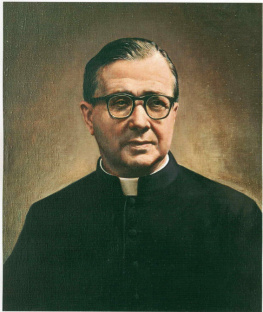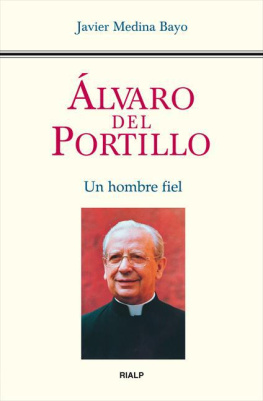John F. Coverdale - Saxum: The Life of Alvaro del Portillo
Here you can read online John F. Coverdale - Saxum: The Life of Alvaro del Portillo full text of the book (entire story) in english for free. Download pdf and epub, get meaning, cover and reviews about this ebook. year: 2017, publisher: Scepter Publishers, genre: Detective and thriller. Description of the work, (preface) as well as reviews are available. Best literature library LitArk.com created for fans of good reading and offers a wide selection of genres:
Romance novel
Science fiction
Adventure
Detective
Science
History
Home and family
Prose
Art
Politics
Computer
Non-fiction
Religion
Business
Children
Humor
Choose a favorite category and find really read worthwhile books. Enjoy immersion in the world of imagination, feel the emotions of the characters or learn something new for yourself, make an fascinating discovery.
- Book:Saxum: The Life of Alvaro del Portillo
- Author:
- Publisher:Scepter Publishers
- Genre:
- Year:2017
- Rating:5 / 5
- Favourites:Add to favourites
- Your mark:
- 100
- 1
- 2
- 3
- 4
- 5
Saxum: The Life of Alvaro del Portillo: summary, description and annotation
We offer to read an annotation, description, summary or preface (depends on what the author of the book "Saxum: The Life of Alvaro del Portillo" wrote himself). If you haven't found the necessary information about the book — write in the comments, we will try to find it.
Saxum: The Life of Alvaro del Portillo — read online for free the complete book (whole text) full work
Below is the text of the book, divided by pages. System saving the place of the last page read, allows you to conveniently read the book "Saxum: The Life of Alvaro del Portillo" online for free, without having to search again every time where you left off. Put a bookmark, and you can go to the page where you finished reading at any time.
Font size:
Interval:
Bookmark:


Copyright 2014 by John F. Coverdale
All rights reserved.
The total or partial reproduction of this book is not permitted, nor its informatic treatment, or the transmission of any form or by any means, either electronic, mechanic, photocopy, or other methods without the prior written permission of the publisher.
Published by Scepter Publishers
P.O. Box 1391
New Rochelle, NY 10802
www.scepterpublishers.org
All photos copyright Prelature of Opus Dei, Office of Communications, unless other wise noted.
Text and cover design by Rose Design
Printed in the United States of America
Library of Congress Cataloging-in-Publication Data
Coverdale, John F., 1940
Saxum : the life of Alvaro del Portillo / John F. Coverdale.
pages cm
ISBN 978-1-59417-214-4 (hardback : alk. paper)
1. Portillo, Alvaro del. 2. Catholic Church-SpainClergyBiography. 3. Opus
Dei (Society)History. l. Title.
8X4705.P65763C68 2014
267.182092dc23
tBI
2014017566
To the memory of Lynn Coverdale
CONTENTS
The most important published source for information on the life of Don Alvaro is Javier Medina Bayos eight-hundred-page biography, Alvaro del Portillo. Un hombre fiel (Madrid: Ediciones Rialp, 2013). I also found useful Salvador Bernals Recuerdo de Alvaro del Portillo, Prelado del Opus Dei (Madrid: Ediciones Rialp, 1996), published in English under the title Alvaro del Portillo (New York: Scepter Publishers, 1999), and Hugo de Azevedos, Misso cumprida: biografia de Alvaro del Portillo (Lisbon: Diel, Ltd., 2008).
I am grateful to the prelate of Opus Dei, Bishop Javier Echeverra, for taking the time to answer my questions, and to Fr. Francesc Castells for orienting me during my research in the archives of the Prelature of Opus Dei, where I focused on Don Alvaros correspondence and on testimonies from people who knew him.
Mara Eugenia Ossandn was kind enough to permit me to use her article Los encuentros entre mons. Alvaro del Portillo y Juan Pablo II (forthcoming in the review Studia et Documenta), which provided helpful information on the relations between del Portillo and St. John Paul II.
Readers who would like information about any particular fact mentioned in this book can direct inquiries to the author via e-mail to .
L ate in the afternoon of March 23, 1994, St. John Paul II arrived at Opus Deis headquarters in Rome for the wake of Bishop Alvaro del Portillo, the prelate of Opus Dei, who had died early that morning.
In the Prelatic Church of our Lady of Peace, where the wake was being held, John Paul II knelt and prayed for ten minutes. When the Pope rose, the vicar general of Opus Dei invited him to say the customary prayers for the dead, but he preferred to pray the Hail Holy Queen followed by three Glory be to the Fathers and the invocation Eternal rest grant unto him, O Lord. When the vicar general thanked him in the name of Opus Dei for coming to the wake, the Holy Father responded in Italian, Si doveva. Si doveva. I had to come. I had to.
Why did the Pope feel he had to come to the wake of Bishop del Portillo?
The principal motive may have been friendship. Del Portillo had demonstrated a lifelong capacity for friendship, and for many years St. John Paul II had counted him among his close personal friends. Another motive may have been a sense of gratitude for del Portillos many services to the Church over the course of his long life. St. Josemara Escriv, the founder of Opus Dei, had often said Opus Deis only ambition was to serve the Church as the Church wants to be served, and Bishop del Portillo learned that lesson well. He was a man of great talent and personal gifts, all of them used fully in the service of the Church.
Finally, John Paul may have wished to pay tribute to a holy man. Throughout his life, del Portillo gave a quiet but impressive witness to the great Christian virtues of faith, hope, and charity, as well as the natural virtues that make a man or woman an outstanding human being. He exhibited fortitude, patience, humility, concern for others, and affection. Above all, his life reflected the virtue of fidelity: fidelity to God, to his personal vocation to Opus Dei, and to its founder, whom he supported unwaveringly from the time they met in 1935 until Escrivs death in 1975. During the next twenty years, he continued to demonstrate as the head of Opus Dei complete fidelity to the founders spirit, which he saw as Gods will for him.
The life of Alvaro del Portillo is an extended lesson in turning the events of daily life into occasions of drawing close to God and bringing others closer to him. Its message is that sanctity and the Christian virtues, far from being somber, are sources of joy and happiness. It demonstrates the effectiveness in the service of God of cheerful self-giving and forgetfulness of self.
Escriv had a phrase from the book of Proverbs sculpted above the door of Don Alvaros office: Vir fidelis multum laudabiturThe faithful man shall be highly praised. His life is capable of moving others to greater fidelity to their own personal vocations. However different the circumstances of our lives may be from his, del Portillos example of fidelity and so many other virtues can speak to us all.
Opus Dei means Work of God. Opus Dei is often referred to simply as the Work.
In Spain it is common to refer to priests, older men, and others who merit special respect by their first name preceded by the honorific Don. From quite early on, the members of Opus Dei began to speak about del Portillo as Don Alvaro. In referring to him after his ordination, I will sometimes call him Don Alvaro.
FINDING THE MEANING OF HIS LIFE
O ne day in March 1935, Alvaro del Portillo got to talking with some other students involved in the St. Vincent de Paul Society about a young priest who was becoming known in Madrid for his work with college students, Father Josemara Escriv. Manuel Prez, who had introduced del Portillo to the St. Vincent de Paul Society, offered to introduce him to Escriv as well. A few days later he took him to the DYA residence in Ferraz Street, at that time the only center of Opus Dei.few minutes. They made an appointment to get together five days later, but Escriv did not keep it. He stood me up, del Portillo later said. He assumed Escriv had received an urgent sick call and could not reach him because he did not have his phone number.
Del Portillo did not attempt to see Escriv again until three months later, after classes had ended. On Saturday July 6, 1935, the day before he was scheduled to leave Madrid for a summer vacation, he went to the DYA residence to say good-bye, and they talked at length about many things. As he was about to leave, Escriv invited him to attend a day of recollection scheduled for the next day. Del Portillo decided to delay his departure and attended the day of recollection.
Opus Dei
We do not know what Escriv told Alvaro during their conversation on July 6, but it is reasonable to think he explained the spirit of Opus Dei, which he had founded seven years earlier. In the foundational vision he received on October 2, 1928, God conveyed a message about the universal call to sanctity, and gave him a mission to promote within the Church the institution he would eventually call Opus Dei. The message and the institution were two aspects of a single reality. The institutions goal would be to spread the message and help people to live it. It would be made up of people who had received a vocation to incorporate the message into their lives and spread it by word and example.
Next pageFont size:
Interval:
Bookmark:
Similar books «Saxum: The Life of Alvaro del Portillo»
Look at similar books to Saxum: The Life of Alvaro del Portillo. We have selected literature similar in name and meaning in the hope of providing readers with more options to find new, interesting, not yet read works.
Discussion, reviews of the book Saxum: The Life of Alvaro del Portillo and just readers' own opinions. Leave your comments, write what you think about the work, its meaning or the main characters. Specify what exactly you liked and what you didn't like, and why you think so.

